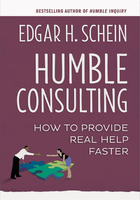"Bath!"
I stumbled into the lobby, slopping water out of my clothes, then slid through what I was spilling. I fumbled, cursing, at the door of my old cabin, remembered sick and silent Zenobia, reeled across the lobby to Colley's cabin, then remembered that I was still using my borrowed cabin in the wardroom. I picked my way more cautiously down the ladder. Webber had the door open.
"I'll take your gear, sir."
Phillips was there too.
"Compliments of the first lieutenant, sir!"
It was a huge towel, rough as a rug and dry as a bone. Naked, I wrapped myself in it as I stepped out of the squelching pile of my clothes. I began to laugh, then whistle, towelling myself round, under, up and down, from hair to feet.
"What's this?"
"First lieutenant, sir."
"Good God!"
Item: a vest, apparently made of string. Item: a rough shirt such as a petty officer might wear. Item: a woollen overgarment of jersey worsted about an inch thick. Item: seaboot stockings almost as thick. Item: a pair of seaman's trowsers—not, I have to say, unmentionables—trowsers! Finally: a leathern belt.
"Does he expect me—"
Suddenly I was overcome with a great good humour and excitement! It looked very much like goodbye to my itching. It was like all those childish occasions of "dressing up", of wearing a paper cocked hat and carrying a wooden sword.
"Very well, Webber—Phillips—take this wet stuff away and dry it. I will dress this time for myself."
There was no doubt about it. A man had to get himself accustomed to the touch of this sort of material on the skin, but at least it was dry and, by contrast, warm. I had a suspicion that unless I regulated the number of layers I now wore, the warmth would turn into an uncomfortable heat. But by the time I was clothed in a complete costume I was wholly reconciled to the change. Of course, no man could be elegant in deportment when clad so! Such clothing would force on the wearer a decided casualness of behaviour. Indeed, I date my own escape from a certain unnatural stiffness and even loftiness of manner to that very day. I realized, too, why though Oldmeadow's soldiers always gathered in the straightest of lines and appeared to be held up by their own ramrods inserted in the spine, an assembly of our good seamen, though mustered regularly and standing in approximate rows, could never imitate the drilled and ceremonious appearance of the soldiers with their imposing uniforms! This was naval rig—in fact, "slops"! The curves and wrinkles defied a geometrical organization.
I went out into the wardroom. The first lieutenant was sitting at the long table with papers spread out before him.
"Charles!"
He looked up and grinned as he saw me.
"How do you find your rig?"
"Warm and dry—but good God, how do I look?"
"You'll do."
"A common seaman—What would a lady say? What will the ladies say? How did you do it? In this soaked ship! Why, there cannot be a dry corner anywhere or a dry inch of cloth!"
"Oh, there are ways—a drawer or box with bags of a suitable substance. But do not speak of that. The same cannot be done for the whole crew and the substance is not for casual handling."
"I have not been so moved by a man's kindness—it is exactly like the story of Glaucus and Diomede in Homer. You know they exchanged armour—gold armour on the one side for bronze armour on the other—my dear fellow—I have promised you the bronze armour of my godfather's patronage—and you have given me gold!"
"The story has not come my way. I am glad you are pleased, though."
"Bless you!"
He smiled a little uncertainly, I thought.
"It is nothing—or not much anyway."
"Will you not accompany me to the lobby and give me countenance for my first public appearance?"
"Oh, come! Do you see these papers? Water, biscuit, beef, pork, beans—we may have to—And after that I ought to take a look at Coombs and his ironwork—then there are my rounds—"
"Say no more. I am on my own. Well. Here goes!"
I left the wardroom, went as bold as brass up the stairs and into the passenger saloon. Our one Army officer, Oldmeadow, was there. He stared for a moment or two before he recognized me.
"Good God, Talbot! What have you done to yourself, man? Joined the Navy? What will the ladies say?"
"'They say—what say they—let them say'!"
"They will say that 'tars' should stick to the front end and not take up the room set apart for their betters. You'd best stay in this part of the ship or a petty officer will lay his rope's end across your back for idling."
"Oh no, he will not, sir! Gentlemen do not need a uniform to be recognized as such. I am comfortable, decent and what is more I am dry, sir. Can you say the same?"
"No, I cannot. But then I ain't as thick as thieves with the ship's officers."
"I beg your pardon?"
"Spend too much of my time looking after my men to badger the Navy into dressing me up from the slop shop. Well, I must be off."
He made his way out of the saloon handily enough against the cant and reel. It did seem to me that he went in order to avoid an argument. He was, and perhaps is, a mild creature. There had been a note of asperity in what he said. But then, during the increasing decrepitude of our ship and more evident danger to our lives, there had been a corresponding change in the character of the passengers and change in the relationship between us. We, so to speak, rubbed on each other. Mr Brocklebank, who had once been an object of no more than amusement, had become an irritant as well. The Pikes—father, mother, little daughters—were, it seemed, divided among themselves. I and Oldmeadow—
"Edmund. Take hold of yourself."
I looked out of the great stern window. It was a different sea, starker now, right to the horizon but strewn with white horses which attempted to follow us but were outrun by their own waves and slid back out of sight. Gusts were whipping through the steadier wind, for sudden lines of spray crossed the direction of the waves which were being marshalled to follow and overtake us.
I gave an involuntary shiver. In the excitement of my shift into seaman's costume I had not noticed that the air, even in the saloon, was colder than it had been.
The door of the saloon opened. I looked round. Little Mrs Brocklebank stared, then bounced forward and stood with her arms akimbo.
"Where do you think you are?"
I rose to my feet. She gave a squeak.
"Mr Talbot! I did not know—I did not mean—"
"Who did you think it was, ma'am?"
For a moment or two she stood there, staring at me with her mouth open. Then she turned quickly and ran away. After a while I began to laugh. She was a pretty little thing and a man could do much worse—if it were not for, of course—Costume was proving to be a test of society.
I sat down again and returned to watching the sea. Rain lashed across the window and already the waves had taken up their new direction. The white horses were more numerous and galloped for a longer period on the waves which had engendered them. It seemed to me that our speed had increased. There came a tap! on the outside of the window. It was the log being lowered. The line stretched further and further astern of us. The saloon door opened and Bowles, the solicitor's clerk, came in. He shook the last traces of water from his greatcoat. He saw me but evinced no great surprise to see how I was dressed.
"Good morning, Mr Bowles."
"Good morning, sir. Have you heard the news?"
"What news?"
"The foremast. Mr Benét and the blacksmith are delayed in their preparation of the ironwork. So the perilous work of restoring the mast to its former efficiency must be put off."
"Believe me, I am thankful to hear that! But why?"
"Charcoal for heating the iron. The ship does not have a large enough supply. The first lieutenant happened to check that part of the stores and found more has been used than was thought."
"That might well be a good thing and give the captain time to think again. What will they do?"
"They are able to make more charcoal. I am told the shoe of the foremast is split and they wish to use the enormous power of metal shrinking as it cools to pull the wood together again."
"So Mr Summers told me."
"Ah yes. Well, you would know, would you not? Some people think that Mr Summers was not sorry to report how little charcoal was available. Mr Benét was not pleased and asked to be allowed to recheck the amount in case the first lieutenant had made a mistake. He was refused abruptly."
"Does Benét not realize how dangerous the attempt is? He is such a fool!"
"That is the trouble, Mr Talbot. He is not a fool—not precisely."
"He had best stick to his poetry which can harm no one except perhaps a sensitive critic. Good God, a cranky ship, a sullen captain—"
"Not so sullen, sir. Mr Benét, I think—speaking without prejudice—has brightened his life."
"Mr Bowles! Favouritism!"
"Without prejudice, sir. Cumbershum is not in favour of the red-hot iron."
"Nor is Mr Summers."
"Nor is our wrinkled old carpenter, Mr Gibbs. Naturally he is a man for wood and thinks red-hot iron should be kept as far away from it as possible. Mr Askew, the gunner, approves. He says, 'What's a bit of hot metal between friends?'"
"They speak each according to his humour as in an old comedy."
I was suddenly restless and stood up.
"Well, Mr Bowles, I must leave you."
I went away through the cold air of the saloon into the windy lobby outside it, then down the stairs again to the wardroom where the air was minimally warmer. Charles had left and Webber brought me a brandy. I stood, my legs apart, and stared out of the window. So soon one accepts as normal a state once desperately desired! I had forgotten what it was to itch!
There came a tap! on the glass. The log was being lifted out of the water.
"The man's a fool!"
It was Mr Benét speaking. He had entered the wardroom silently.
"The quartermaster?"
"He should pay the line out over the quarter. He will break every pane if he goes on like this."
"How is your charcoal?"
"So you have heard too! This ship reverberates like the belly of a cello! Coombs is seeing to it. I must wait. It is in his hands."
"Not yours?"
"I am in overall control. I am only thankful that Coombs knew exactly how much sheet iron he had before certain other people could measure the area."
"At all events you must be glad for a time of leisure with your many activities."
"Work enables me to forget my sorrow, Mr Talbot. I do not envy you, given twenty-four idle hours a day in which to feel the pangs of separation."
"It is good of you to remember my situation. But, Mr Benét, since we are companions in sorrow—you remember those too brief hours when Alcyone was compelled by the flat calm to lie alongside us—"
"Every moment, every instant is chiselled in my heart."
"In mine too. But you must remember that after the ball I was lying delirious in my cabin."
"I did not know."
"Not know? They did not tell you? I mean during that time when the wind returned and Alcyone was forced to leave us—"
"'Utmost dispatch.' I did not know about you, sir. I had my own sorrows. Separation from Belovéd Object—"
"And Miss Chumley too! She must have known I was—lying on a Bed of Pain!"
"The fact is, what with my sudden—departure—from one ship and entry into another—my exchange with one of your lieutenants—"
"Jack Deverel."
"And what with my separation from One who is more to me than all the world—despite the warmth of your genial captain's welcome—"
"Genial! Are we thinking of the same man?"
"—I had no solace but my Art."
"You could not have known that there would be scope for your engineering proclivity!"
"My Muse. My poetry. The parting struck verses from me as quickly as the iron strikes a spark from the flint or vice versa."
Mr Benét put his left hand on the long table and leaned on it. He laid the other hand on that portion of the chest where I am assured the heart lies concealed. He then stretched that hand out towards the increasingly tormented sea.
The salutation which she cast
From ship to ship had been our last!
Her eye had dropped a winking tear
Which I could see for she stood near—
And standing did not smile nor frown
As seamen drew the main course down,
But 'twas a dagger at my heart
To feel the two ships move apart!
The tap of blocks, a loosened brail,
A breath of air, a filling sail,
A yard no more, of shadow'd sea—
But oh, what leagues it was to me!
"I am sure all the verses will seem very pretty, Mr Benét, when properly written down and corrected."
"Corrected? You find some fault?"
"I could detect little enjambement but that is by the way. She was with Miss Chumley. Did Miss Chumley not speak?"
"Lady Somerset and Miss Chumley were speaking together. They ran to Truscott, the surgeon, as soon as he came aboard from your ship."
"You could not hear what they said?"
"Directly Alcyone had cast off, Sir Henry left the deck and went below. Then Lady Somerset came to the taffrail and gestured thus."
Lieutenant Benét straightened up. He raised his cupped hand to his mouth and deposited something in it. Then with a female twist of the body he brought his right hand back over his shoulder and, opening the palm, appeared to throw something through our stern window.
"It seems an elaborate way of getting rid of her spittle, Mr Benét. Commonly people do what young Mr Tommy Taylor describes as 'dropping it in the drink'."
"You are facetious, sir. It was the Salutation!"
"But Miss Chumley—you could not hear what she said?"
"I had been below, stowing my gear. When I heard the pipes I knew the moment had come—thrust Webber out of the way—rushed up the ladder—it was too late. The springs and breast ropes were in. You, sir, I doubt you have the sensibility to understand the completeness of separation between two ships when the ropes are in—they might be two separate continents—familiar faces are those of strangers at once. Their future is different and unknown. It is like death!"
"I believe I have as much sensibility as the next man, sir!"
"That is what I said."
"But Miss Chumley did not speak?"
"She came to the rail, and stood there as Alcyone moved away. She looked woebegone. I daresay she was feeling seasick all over again, for you know, Mr Talbot, she was said to be a martyr to it."
"Oh, the poor child! I appeal to you, Mr Benét. I will not elaborate on the nights of tears, the yearnings, the fear that some other man, the need to communicate with her and the present impossibility of doing so! She is bound for India, I for New South Wales. I met her for no more than a few hours of that miraculous day when our two ships were becalmed side by side—I dined with her—later I danced with her at that ball aboard this ship—was ever such a ball held in mid-Atlantic? And then I collapsed—concussion—fell sick—was delirious—but we had parted—if only you could understand how precious to me would be some kind of description of her time in Alcyone when you were—wooing Lady Somerset—"
"Worshipping Lady Somerset."
"And she, Miss Chumley, I mean your acquaintance, even your ally in that reprehensible—what am I saying—that tender attachment—"
"The love of my life, sir."
"For you know, that one day thrust me into a new life! The instant I saw her I was struck by, destroyed by lightning, or if you are familiar with the phrase, it was the coup de foudre—"
"Say that again."
"Coup de foudre."
"Yes, the phrase is familiar."
"And before we parted she did declare that she held me in higher regard than anyone else in the two ships. Later still I received a billet doux—"
"A billet doux, for God's sake!"
"Was that not encouragement?"
"How can I tell unless I know what was in it?"
"The words are chiselled in my heart. A young person will always remember the time when two ships were side by side in the middle of the sea and hopes that one day they may put down their anchors in the same harbour."
Mr Benét shook his head.
"I find no encouragement for you there, sir."
"None? Oh, come! What—none?"
"Very little. In fact it sounds to me uncommonly like a congé, if you are familiar with the word. You would probably call it a 'congy' or something."
"A farewell!"
"With perhaps an undertone of relief—"
"I will not believe it!"
"A determination that the affair should end as painlessly as possible."
"No!"
"Be a man, Mr Talbot. Do I whine or repine? Yet I have no hope whatever of seeing the Belovéd Object again. All that consoles me is my genius."
With those words Mr Benét turned away and vanished into his own cabin. A tide of furious indignation overwhelmed me.
"I do not believe a word he said!"
For she was there, vividly—not the Idea of a young person, the lineaments of whose face I could never bring together no matter how I tried as I writhed in my bunk—but there, breathing lavender, her eyes shining in the darkness and her soft but passionate whisper—"Oh no indeed!"
Benét had not seen her so, heard her so.
"She felt as I do!"















